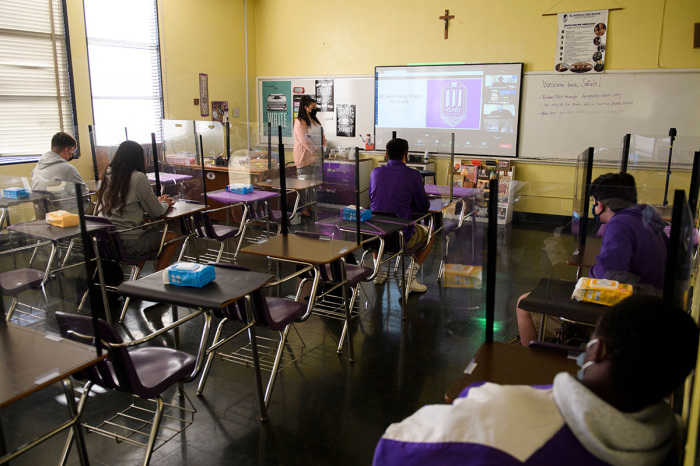Supreme Court to decide if parents in Maine can use state funds to send kids to religious schools

The U.S. Supreme Court has agreed to hear arguments in a case about whether parents in Maine can receive state tuition assistance to enroll their children in private religious schools.
In an order list released Friday, the Supreme Court agreed to hear arguments in the case of David Carson et al. v. A. Pender Makin, the latter being sued in her capacity as commissioner of the Maine Department of Education.
At issue is a group of parents who oppose a state regulation that allows for tuition assistance only if a private school is "nonsectarian in accordance with the First Amendment of the United States Constitution."
Scott Bullock, president of The Institute for Justice, which is representing the parents, said in a statement Friday that it was “time to expand educational opportunity for all families.”
“Parents should have access to a wide array of educational options — public and private, religious and non-religious — so that they can access the school that best meets their child’s unique, individual needs,” stated Bullock. “The Supreme Court now has the chance to help make that a reality.”
In 2018, the parents sued Maine over the ban on state tuition assistance for parents who want to send their children to a private school that includes sectarian aspects in its curriculum.
The plaintiffs included the Carsons and the Gillises, who enrolled their children at Bangor Christian School, and the Nelsons, who wanted to transfer their daughter from a nonsectarian private school to Temple Academy, where their son was already enrolled.
Over time, the Gillises were removed from the litigation when their daughter graduated from high school and was thus no longer potentially eligible for the state tuition assistance.
In June 2019, U.S. District Judge Brock Hornby ruled against the families, concluding in his decision that “Maine’s educational funding program is constitutional.”
Last October, a three-judge panel of the U.S. Court of Appeals for the First Circuit unanimously upheld the Hornby decision, with Circuit Judge David Barron authoring the opinion.
“In conditioning the availability of that assistance on the requirement that recipients use it for educational instruction that is as nonsectarian in content as the free public education that is not directly available to them, Maine transgresses neither the Free Exercise Clause nor the Establishment Clause,” wrote Barron.
“Rather, it permissibly satisfies a commitment, rooted in its own founding charter, to pursue the wholly legitimate end of ensuring the distribution of the benefits of a free public education even to those who happen to live in places that cannot provide it of their own accord.”
In February, the Institute for Justice, along with the First Liberty Institute and others, filed an appeal to the Supreme Court, asking the justices to take up the case.
“By singling out religion — and only religion — for exclusion from its tuition assistance program, Maine violates the U.S. Constitution,” said Institute for Justice Senior Attorney Michael Bindas in a statement.
“By allowing nominally religious schools to participate but excluding schools that actually provide a religious curriculum, Maine is making governmental decisions about how religious is too religious. Government should not have that power.”





























